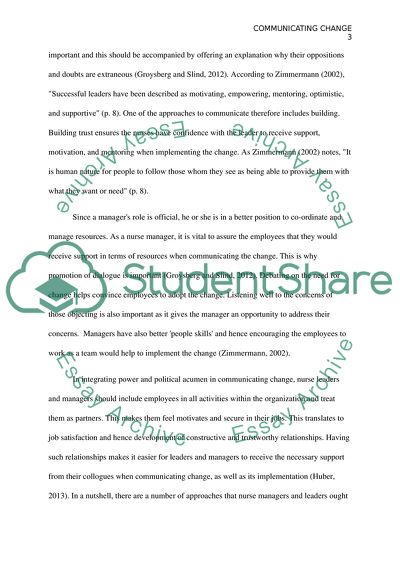Not Found (#404) - StudentShare. https://studentshare.org/nursing/1834083-nursing-care-management-communicating-about-change
Not Found (#404) - StudentShare. https://studentshare.org/nursing/1834083-nursing-care-management-communicating-about-change.


